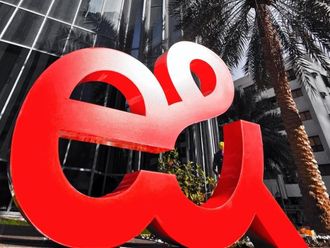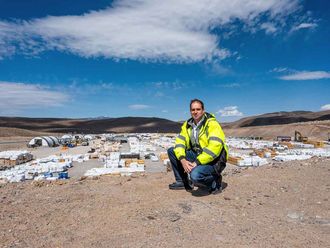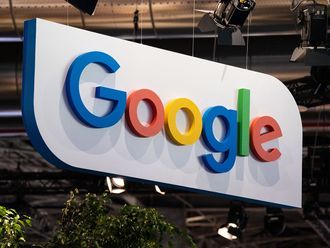New York: Mike Maples says he came to Silicon Valley from Texas in 2005 as a "washed-up" corporate-software executive aspiring to be a venture capitalist. Unable to land a job with a half-dozen firms, he put his own money to work.
Five years later, his stakes in Twitter, Digg, SolarWinds and Chegg have turned Maples into a celebrity on Menlo Park's Sand Hill Road, where he's investing alongside the same firms that didn't make him a partner. And he's turning a profit while the rest of the industry slumps. Venture firms have lost an average of about one per cent annually over the past decade, according to Cambridge Associates.
Maples's $25,000 (Dh91,802) investment in Twitter four years ago had multiplied by 26 times as of September, and his $500,000 stake in textbook rental company Chegg may be up even more. By catching companies at their earliest stages, sometimes before they have business plans, Maples is buying on the cheap. He also makes smaller investments than firms with billion-dollar funds, letting him tap into startups that need less capital.
"We can do the wacky controversial thing that can't make it through a venture firm," said Maples. "If the company is awesome, we're going to be in early at such a low valuation that it's just going to cover all sins."
Thunder lizards
For Maples, the goal is to find what he calls "thunder lizards," a term he used at least 18 times in an hourlong interview. It's a reference to Godzilla, which "was hatched from radioactive atomic eggs and swam across the Pacific and destroyed Tokyo," Maples said. A thunder lizard is a company that disrupts its industry, earns a 100-fold return and makes up for all of a fund's bad bets, he says.
Twitter, Chegg and other investments have the potential to be thunder lizards, Maples said. Not all of his bets have panned out, though. B-Side Entertainment, which ran websites for film festivals, closed this year, and the microblogging site Pownce shut down in 2008.
His biggest dud so far was an investment he didn't make. Maples declined an early opportunity to invest in Zynga Game Network, the maker of Facebook games such as FarmVille and Mafia Wars.
Zynga is now worth as much as $3.3 billion, according to a February report from SharesPost and Next Up! Research.
Though his Southern twang stands out in Silicon Valley, Maples isn't a technology outsider. His father, also named Mike, was an executive at Microsoft and International Business Machines. Bill Gates attended his wedding, and Maples studied engineering at Stanford University, near Palo Alto. By the time he returned to California after more than a decade in Texas, Maples had helped take two companies public, including Motive Inc., which he co-founded in 1997.
Maples says he looked for a job up and down Sand Hill Road, the centre of the venture industry and home to Kleiner Perkins Caufield & Byers, Sequoia Capital and Benchmark Capital.
Unable to find a position as a partner, he got two stints as an entrepreneur in residence — first at Foundation Capital and then at August Capital.
While at August, Maples earned a reputation for spotting unusual investments, says Andy Rappaport, a partner there since 1996.
"A lot of the stuff he was finding and working on and showing to us was different from many of the things that would have gotten our attention," he said. "He was catching good entrepreneurs."
New breed
Rappaport puts Maples in a new category of investors taking advantage of open-source software and cloud computing. Those trends have pushed down the price of funding a startup. SV Angel, run by veteran investor Ron Conway, and Lowercase Capital, started by former Google Inc. executive Chris Sacca, have similar strategies — as do Baseline Ventures and First Round Capital. They routinely write cheques for $500,000 or less.
The success of the approach is also drawing more competition from traditional venture capitalists, which are making smaller investments and betting on untested entrepreneurs.
Maples took a chance on Twitter when it had another name and a different business. He was a fan of co-founder Evan Williams, who had previously started companies focused on blogging and podcasting. By last year, Twitter was valued at $1 billion, according to a person familiar with the matter.
Maples put $500,000 into textbook-rental service Chegg in 2007 after meetings with co-founders Osman Rashid and Aayush Phumbhra at a Starbucks in Menlo Park. At the time, he wasn't even certain college students would rent books.Chegg later attracted funding from Kleiner Perkins and Foundation Capital. Students at more than 6,400 campuses now use Chegg's service, and sales may exceed $100 million this year, sources said in November.












